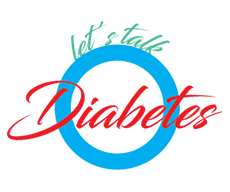What is diabetes?
Using a broad definition, diabetes is an endocrinological disorder that affects the metabolism of carbohydrates and sugars in the body; in other words, it's a disease that affects how you produce your energy when you eat a big bowl of cereal, rice or pasta. Without any treatment, the unmetabolized carbohydrates sits in the blood and concentrates it. Over a certain period of time, it begins to affect the pH of the blood, causing it to be more acidic. This is known as ketoneacidosis, which can be life-threatening if not treated.
This is what happens without insulin, a hormone that assists in metabolizing carbohydrate. Without it, besides ketoneacidosis, poor circulation can result among other health problems.
But the disease can also spiral in the other direction; it can metabolize too much and ause a defecit in sugar of the blood. This can cause a lack of nutrients to the brain, causing drunk-like symptoms or erratic behavior, leading to a coma, then possible death.
This doesn't paint a pretty picture of the disease, and it's scary for a newly diagnosed diabetic to encounter a world of multiple daily injections, squeezing blood out of fingers and peeing on a stick to see if the urine is concentrated with ketones. But there is support and a plethora of resources to absorb.
